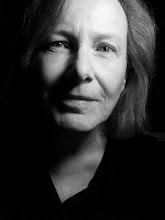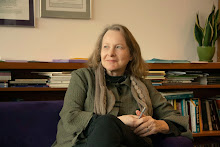
What does it mean to be a poetry critic? Should a poetry critic also be a poet? Aren't all poets critics by necessity? After all, poets think about their work, how to best revise it, how it might work differently and so forth. Even when proceeding by pure experimentation, poets will figure out what they've done once they've done it. Many, if not most, poets are also teachers. How do they teach poetry without analyzing, comparing, discussing and evaluating, then articulating their thoughts to an audience? Some poets are also editors, requiring them to make judgments of work submitted to them. How is this done if not by thinking critically about poetry, seeing the poem as an aesthetic object and attempting to understand and articulate, if only to oneself, how and what it is doing?
At the Harriet Blog, DA Powell sees a separation between poet and critic while Reginald Shepherd argues for their natural, if not inescapable, coupling. I agree with Reginald. Books get reviewed, submissions accepted or rejected, and seminars and poetry workshops conducted all on the basis of thinking critically about poetry. There is hardly a way to be a poet and avoid teaching it, writing about it, talking about it, blogging about it, etc. Everyone's a critic as they say, and nowhere is this more obvious than in poetry. But isn't poetry criticism a separate field of knowledge? What constitutes poetry criticism as a discipline, where and how is it studied, and where does it fit in the field of poetry? What training should a poetry critic have? These questions are being provoked as I read the terrific Praising it New: The Best of the New Criticism, a newly-published anthology of the writings of the New Critics edited by Garrick Davis. I am struck by the intellectual depth, rigor and commitment to poetry and truth these critics had.
After another, related, reading, "The Shakespeared Brain", an article by Phillip Davis, I did some research on rhetoric, its history and terminology. Useful in writing and also in criticism, the study of rhetoric seems to have gone the way of studying grammar. Perhaps the brain studies described by Davis will inspire more study of the way language usage affects thinking, and rhetoric will return as a hot new field of study. A few years ago I proposed an alternative course of study for an MFA in poetry that doesn't include writing a poetry "thesis" or taking workshops, but instead would be an MFA in Poetry Criticism—comprising the reading of and thinking critically about, poetry, with a minor focus on writing your own (and maybe a major focus on rhetoric!).



